What Does “Disrespecting The National Language” Mean? Here Is What We Think It Is…
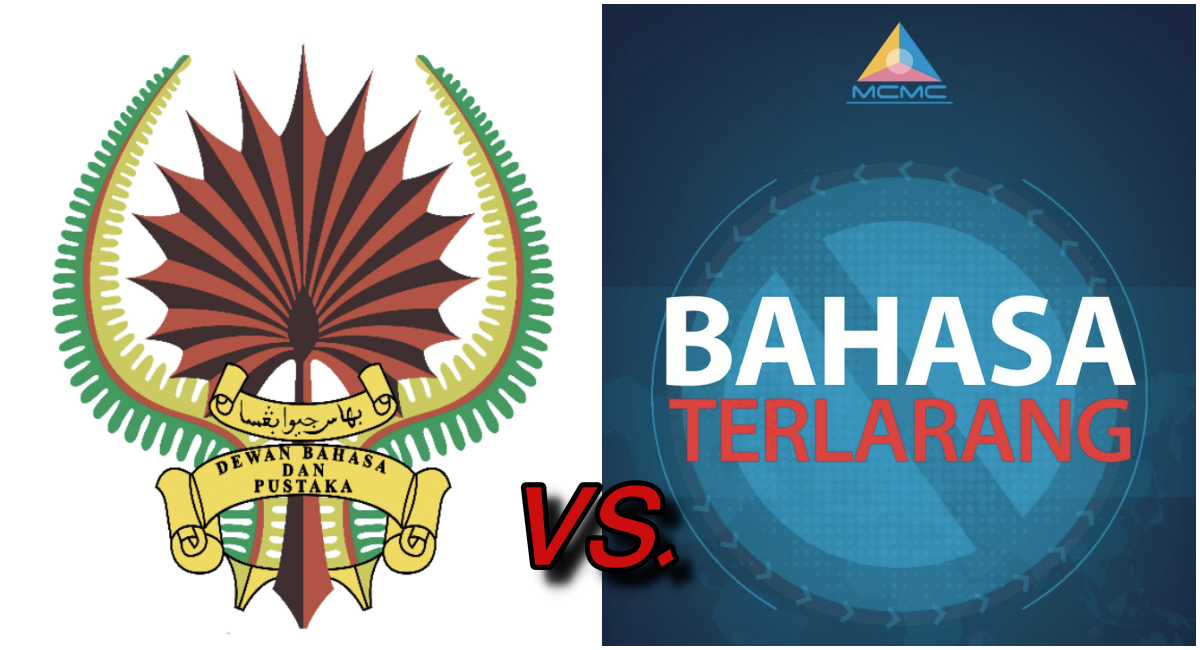 Thirsty for JUICE content? Quench your cravings on our Instagram, TikTok and WhatsApp
Thirsty for JUICE content? Quench your cravings on our Instagram, TikTok and WhatsApp

In case you missed it, the internet had a field day when news broke of the Dewan Bahasa dan Pustaka governors pushing for a law to punish those who do not respect Bahasa Malaysia with fines of up to RM50,000 or jail terms, as reported in Malay Mail.
Check out the reactions below:
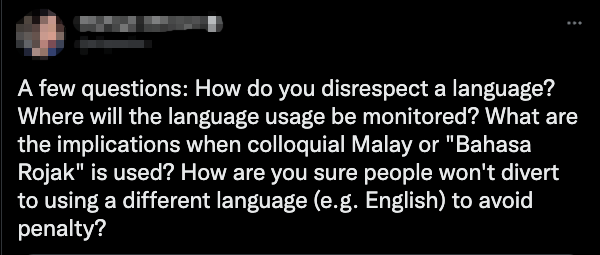
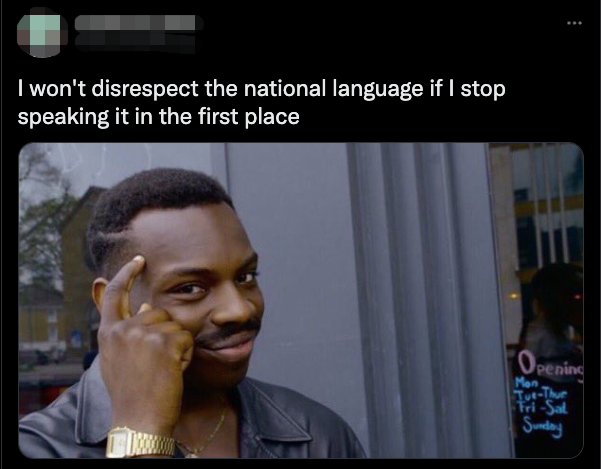
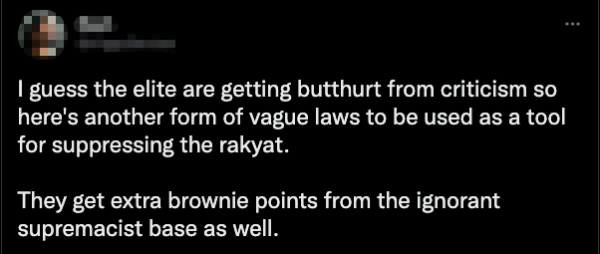
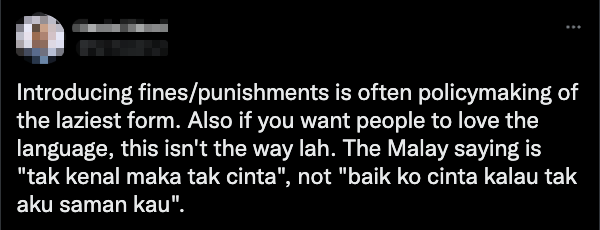
DBP board of governors chairman Prof Datuk Seri Awang Sariyan stated that the two punishments were proposed in the amendments to the act and that it will be presented to the prime minister next month.
“This is not about grammar or spelling errors, but disrespect for the national language. The proposed fine is not to punish but to evoke love and patriotism to the country,” he told reporters.
While it hasn’t been revealed what they mean by “disrespect for the national language”, we can only assume that they are referring to cuss words that are commonly used in today’s online discussions.
It’s either that or they genuinely mean that “disrespecting” means comparing it to other languages and calling Bahasa Malaysia inferior. However, that wouldn’t make much sense since Malaysia does have multiple other languages that we use on a daily basis.
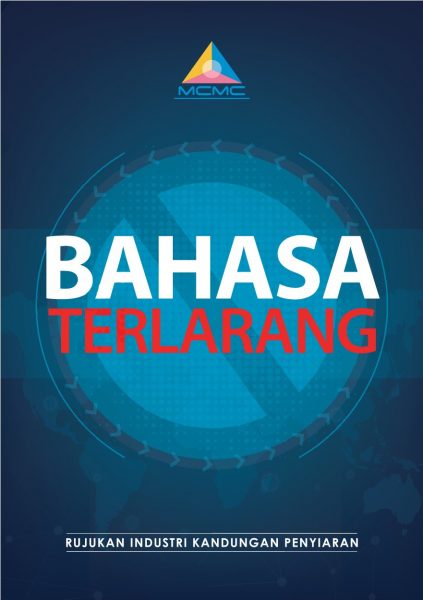
In the former’s case, DBP isn’t the only one who has addressed this, as MCMC had released a 16-page document detailing exactly how offensive language is detrimental to our society as a whole albeit they covered all languages and dialects in Malaysia – not just Bahasa Malaysia.
Understandably so, the document stated that cuss words reflect poorly on our people as it depicts us as uncivilised and improper. Here are a few examples of impolite language according to MCMC:
- Name calling towards an individual
- Name calling towards an institute or organisation i.e politics and politicians
- Equating humans to animals
- Equating humans to bodily excrements
- Name calling towards an individual’s characteristics
- Objectifying humans
- Offending religions and races
You can read the whole document here.
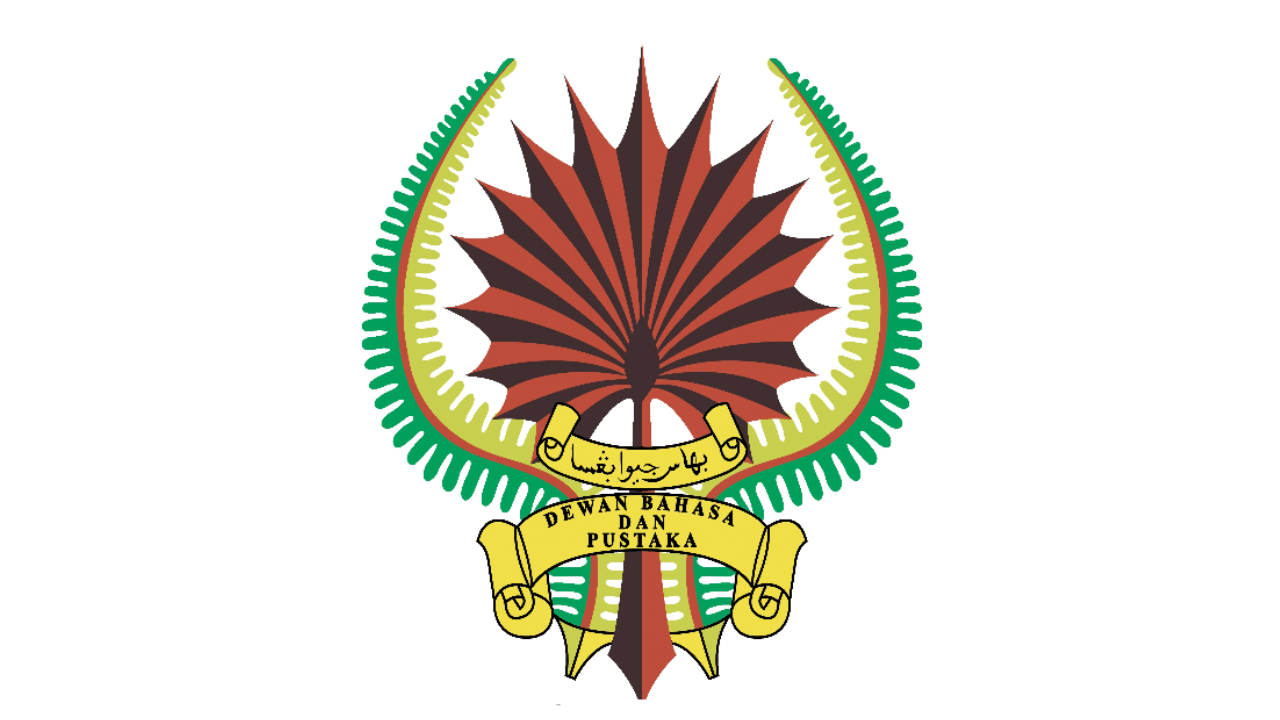
We suspect that DBP has the same idea when it comes to abolishing “disrespectful” language which is why we should take a look at some of the cuss words that you and I are definitely familiar with that could potentially lead to fines and jail time in the future.
Put RM50,000 in the swear jar!

Since DBP is focusing on bringing down the hammer of politeness on those who disrespect the national language, we’ll be highlighting the Malay cuss words mentioned in MCMC’s document which could prove to be relevant later.
Here they are:
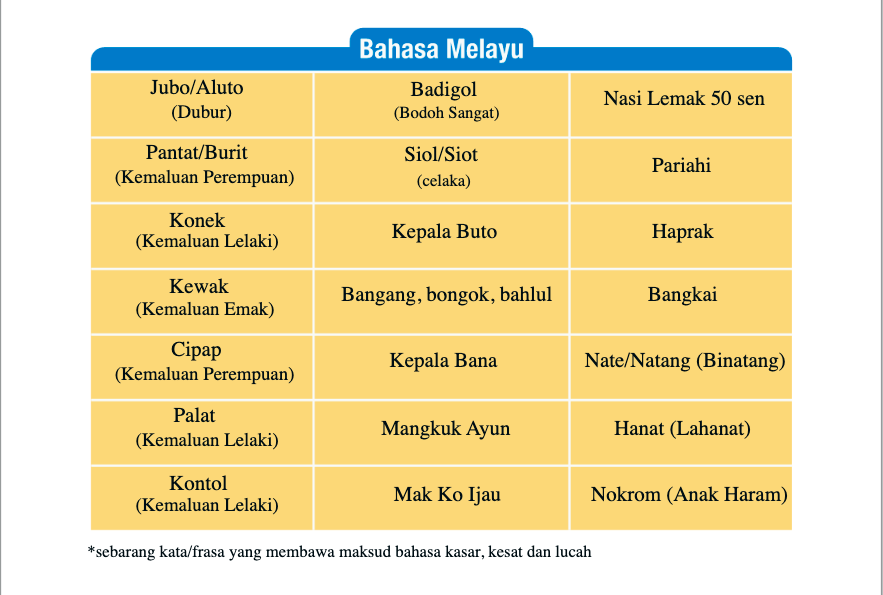
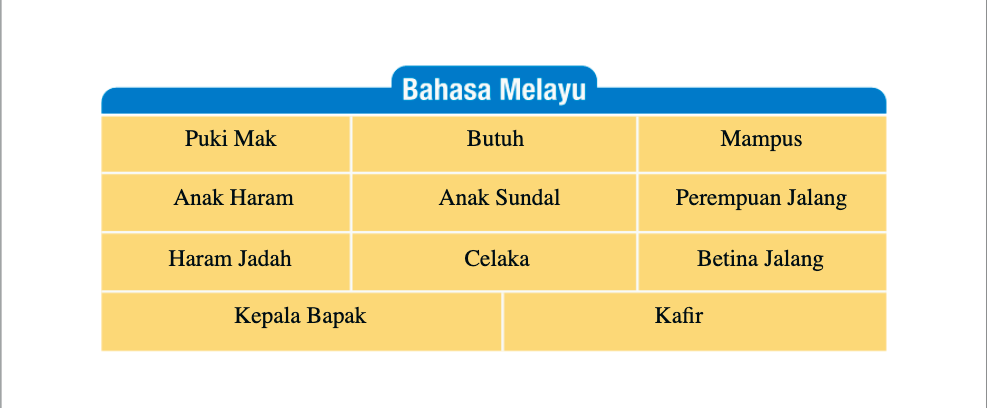
I’ll have to admit, as a Malay myself, some of these cuss words are new to me, but they do have that guttural vehemence that is oh-so-crucial in cursing someone out.
Collectively, we’re all familiar with most of these cuss words so it will definitely lead to an uproar (hopefully one that is expressed using more polite terms) if we can no longer use them in our day to day lives.

So in an effort to lighten the mood, let us provide you with some alternatives that have the same ring to it, but it won’t land you in jail or having to pay the exorbitant RM50,000 fine.
- Kelabu asap: Popularised by P. Ramlee who was the king of coming up with nonsensical curse words.
- Bengong: Add a little twang to this rendition of Bangang to hide yourself from authorities.
- Nasi Lemak RM1.20: Because inflation exists, and it unfortunately affects our cuss words too.
- Sudu garfu: Since household items like Mangkuk Ayun is considered a cuss word nowadays, why not throw in other utensils into the mix?
All jokes aside, cussing is a part of nature regardless of where you’re from. It reduces stress and provides humour and camaraderie when we’re expressing our grouses on situations that frustrate us.
Context definitely matters in cases like these and we hope that nobody is slapped with such a drastic punishment simply for saying a bad word online.

 Get Audio+
Get Audio+ Hot FM
Hot FM Kool 101
Kool 101 Eight FM
Eight FM Fly FM
Fly FM Molek FM
Molek FM